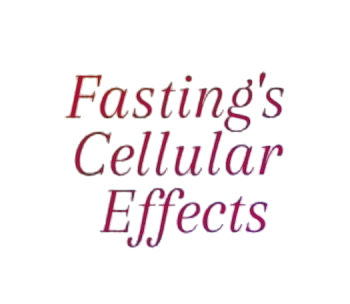Fasting’s Cellular Effects

Fasting’s Cellular Effects: Unlocking the Power of Cellular Renewal
Fasting sparks a cellular renewal process, rejuvenating cells and enhancing overall well-being.
Fasting, or abstaining from food and drink for a period of time, has been practiced for centuries for its spiritual, mental, and physical benefits. Recent research has shed light on the cellular effects of fasting, revealing its potential to promote cellular renewal, enhance metabolic function, and even increase lifespan.
One of the primary cellular effects of fasting is the induction of autophagy, a natural process in which cells recycle and remove damaged or dysfunctional components. During autophagy, cells create membrane-bound structures called autophagosomes, which engulf and digest damaged cellular material, including proteins and organelles. This process helps maintain cellular homeostasis, prevents disease, and promotes overall cellular health.
Fasting also stimulates the production of new cellular components, such as proteins, organelles, and even entire cells. This process, called cellular regeneration, is mediated by the activation of cellular pathways that promote the expression of genes involved in cellular growth and differentiation.
In addition to autophagy and cellular regeneration, fasting has been shown to enhance cellular stress resistance. When cells are subjected to stress, such as oxidative stress or heat shock, they activate stress-response pathways that help protect against damage. Fasting has been shown to increase the expression of genes involved in these pathways, making cells more resilient to stress.
Furthermore, fasting has been found to promote cellular cleaning by stimulating the removal of damaged or dysfunctional mitochondria, the energy-producing structures within cells. This process, called mitophagy, helps maintain mitochondrial function and prevent cellular energy deficits.
The cellular effects of fasting are mediated by a complex interplay of hormonal and metabolic changes. When we fast, our bodies switch from relying on glucose (sugar) for energy to relying on ketones, which are produced by the liver from fat breakdown. This metabolic shift activates cellular pathways that promote autophagy, cellular regeneration, and stress resistance.
In conclusion, the cellular effects of fasting are a powerful tool for promoting cellular renewal, enhancing metabolic function, and increasing lifespan. By understanding the cellular mechanisms underlying fasting, we can unlock its full potential and harness its benefits for optimal health and well-being.
